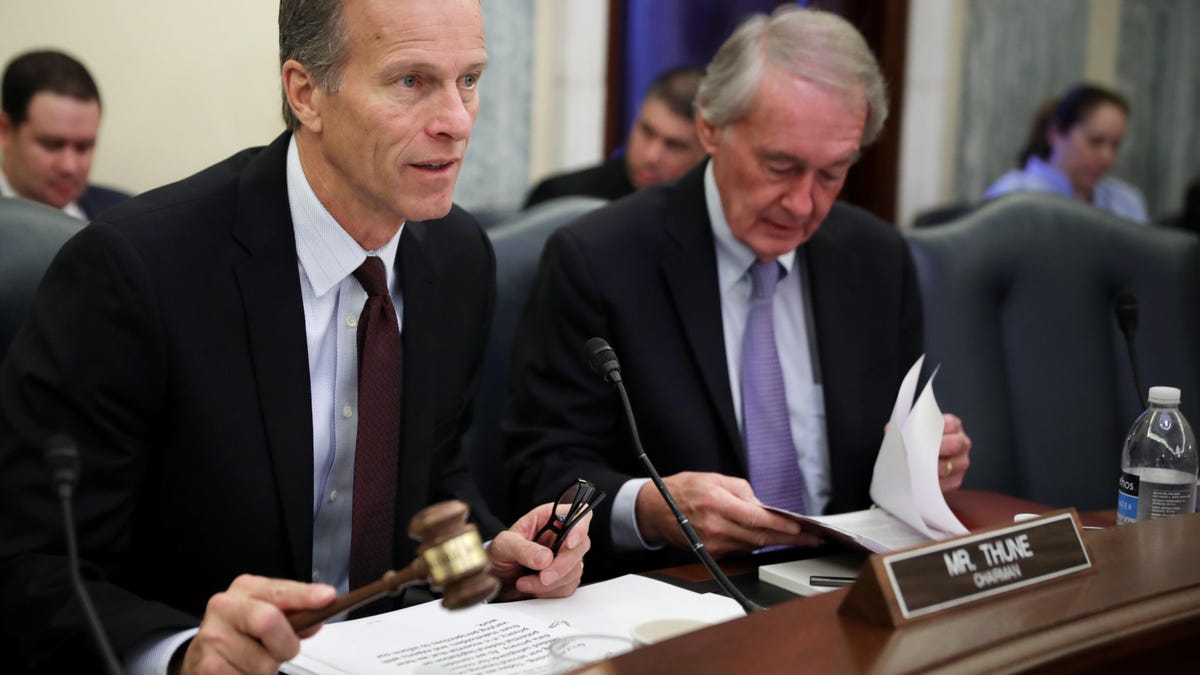Sens. Markey and Thune want a crackdown on coronavirus robocall scams
The senators send letters to the FCC and Justice Department urging them to do more to stop scams targeting elderly people during the pandemic.

Sens. John Thune (R-SD) (L) and Ed Markey (D-MA) sent a letter Monday to federal agencies asking them to do something about coronavirus related robocall scams.
Leaders in the Senate are urging the Federal Communications Commission and the Department of Justice to do more to stop coronavirus-related robocalls. Sens. Ed Markey, a Democrat from Massachusetts, and John Thune, a Republican from South Dakota, said they fear these scams will target older Americans.
In their letters to FCC Chairman Ajit Pai and US Attorney General William Barr, the senators referenced the Washington Post in describing scams, which maliciously offer fake COVID-19 testing kits or nonexistent medical equipment.
"We are particularly concerned by the threat these calls pose to elderly Americans," the senators wrote. "They are especially vulnerable to robocall scams, and they are among those at the greatest risk from coronavirus."
Markey and Thune, who authored the Telephone Robocall Abuse Criminal Enforcement and Deterrence Act that was approved by Congress late last year, said that "robocalls that spread misinformation about cures, peddle ineffective equipment and offer bogus medical advice have the potential to inflict significant harm on individuals and communities across the country."
Robocalls have been a growing problem. In 2019, 58.5 billion robocalls were made in the US, according to YouMail. The FCC has been working to combat the problem. It adopted new rules in September to go after illegal robocallers based overseas. The rules aim to close loopholes in the regulations that prevented the agency from going after offenders based outside the US or scammers who text messages to defraud people.
Signed into law by President Donald Trump, the TRACED Act requires phone companies to block robocalls without charging customers any extra money. The law also expands the authority of the FCC and Justice Department to find and fine scammers.
Scammers are using the coronavirus crisis as an opportunity to target vulnerable Americans. The FCC on Friday launched a COVID-19 Consumer Warnings and Safety Tips webpage to alert consumers to the proliferation of these phone and text scams related to the coronavirus pandemic.
"We're tracking scams and sharing information to arm consumers about how imposters use spoofing and other tactics to steal their money and their identity," Patrick Webre, chief of the FCC's Consumer and Governmental Affairs Bureau, said in a statement Friday. "The FCC fights these types of scams through enforcement of its rules, but our primary goal is to be proactive so Americans don't fall victim to these bad actors."
Meanwhile, the FCC also stated in a declaratory ruling on Friday that it is exempting health care providers and public health agencies from rules in the Telephone Consumer Protection Act, which generally prohibits automated or pre-recorded calls and texts without recipients' permission.
The agency said the current pandemic qualifies as an emergency under the law, which permits hospitals, health care providers, state and local health officials, and other government officials to make automated calls related to the pandemic without getting the prior consent under an "emergency purposes" exception, the FCC said.
The agency said this will clear the way for safety-critical communications during the COVID-19 outbreak.

